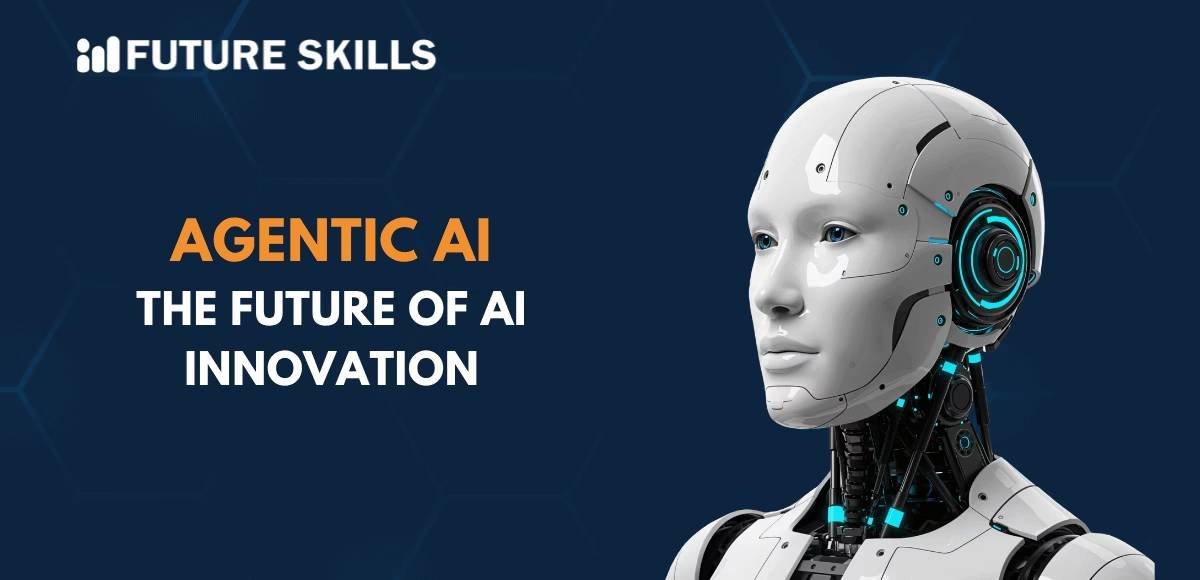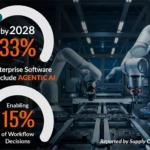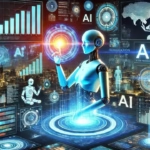“`html
The Accelerating Dawn of Agentic AI: Future Trends for 2025
Estimated reading time: 12 minutes
Key Takeaways
- Agentic AI represents a significant leap from traditional AI, enabling autonomous decision-making and goal pursuit with minimal human oversight.
- Recent breakthroughs in agentic AI include self-healing systems, end-to-end workflow automation, and advanced reinforcement learning applications.
- Agentic AI is profoundly transforming businesses through hyperautomation, new business models, enhanced customer experiences, and increased organizational agility.
- Distinguishing between physical AI vs. agentic AI highlights their complementary roles, with agentic AI providing the intelligence for physical systems.
- Key agentic AI future trends 2025 point towards more advanced goal management, inter-agent collaboration, heightened autonomy, and expanding domain applications.
- Significant challenges remain, including control, security, socioeconomic impact, and the crucial need for responsible AI development and ethical frameworks.
Table of Contents
- The Accelerating Dawn of Agentic AI: Future Trends for 2025
- Key Takeaways
- Understanding Agentic AI: The Foundation of Autonomous Action
- Key Breakthroughs and Innovations in Agentic AI
- The Transformative Impact: How Agentic AI is Changing Business
- Navigating the Landscape: Physical AI vs. Agentic AI
- Peering into the Horizon: Agentic AI Future Trends for 2025 and Beyond
- Challenges and Ethical Considerations in the Age of Agentic AI
- Looking Ahead: The Promise and Responsibility of Autonomous AI Agents
- Frequently Asked Questions
The pace of artificial intelligence is no longer just accelerating; it’s rapidly evolving towards unprecedented levels of autonomy. We stand on the precipice of an era where AI systems are not merely tools but active participants, capable of independent thought and action. This shift marks the advent of agentic AI future trends 2025, a concept that will redefine our technological landscape. This post will delve into the significant shifts and advancements we can expect in agentic AI within this timeframe. At its core, agentic AI refers to systems empowered with the ability to make autonomous decisions, pursue defined goals, and execute actions independently, requiring minimal human intervention. This distinguishes it sharply from traditional AI, which often relies on pre-programmed instructions or direct commands. Agentic AI is characterized by its proactive, adaptive, and goal-oriented nature, heralding the rise of autonomous AI agents. We will explore the fundamental concepts, recent breakthroughs in agentic AI, understand how agentic AI is transforming business, differentiate between physical AI vs. agentic AI, project agentic AI future trends 2025, and discuss the critical challenges and ethical considerations that accompany this powerful evolution. The overarching finding is clear: agentic AI is rapidly transforming in 2025, moving beyond simple automation to sophisticated, autonomous decision-making, becoming deeply integrated into business processes, and exerting broader societal impacts.
Understanding Agentic AI: The Foundation of Autonomous Action
At its heart, agentic AI is built upon the principle of entities possessing the capacity to perceive their surroundings, make informed decisions, and enact actions to achieve specific objectives autonomously. The term “agent” in this context denotes a system endowed with agency – the power to act independently and make its own choices. This fundamental aspect of agentic AI, driving the rise of autonomous AI agents, is what sets it apart. This capability for autonomous decision-making is the cornerstone. For AI, this means possessing the ability to meticulously plan complex sequences of actions, execute multi-step tasks, and dynamically adapt its strategies in response to evolving circumstances, all without the need for continuous human guidance. The distinction between agentic AI and traditional AI is profound. While conventional AI often excels at performing pre-programmed tasks or reacting to explicit commands, agentic AI is engineered for initiative. It learns, adapts, and responds dynamically, continuously optimizing its performance in real-time.

Key Breakthroughs and Innovations in Agentic AI
The field of agentic AI has witnessed a flurry of remarkable breakthroughs in agentic AI, pushing the boundaries of what autonomous systems can achieve. These advancements are not theoretical; they are practical innovations reshaping industries. We are seeing the emergence of self-healing systems, where agentic AI autonomously monitors and repairs critical infrastructure, such as data pipelines, thereby minimizing costly downtime and reducing the need for manual intervention. [Source: https://research.aimultiple.com/agentic-ai-trends/] [https://www.penbrief.com/agentic-ai-trends-2025]. Furthermore, end-to-end workflow automation is becoming a reality, with agentic agents now adept at managing intricate, multi-stage processes like entire marketing campaigns, continuously optimizing based on real-time performance data. [Source: https://www.ibm.com/think/insights/agentic-ai] [https://www.penbrief.com/game-changing-ai-marketing-tools]. The power of advanced techniques like reinforcement learning is also being leveraged to enable agentic AI to tackle complex, unstructured, and dynamic tasks across diverse sectors, including CI/CD, healthcare, and legal domains. [Source: https://research.aimultiple.com/agentic-ai-trends/] [https://www.penbrief.com/revolutionary-ai-medical-breakthroughs-healthcare]. A significant trend is the democratization of development; innovations are making it simpler and more accessible for businesses to create and deploy their own agentic AI solutions. [Source: https://beam.ai/agentic-insights/what-is-agentic-ai-why-every-entrepreneur-should-care-in-2025] [https://www.penbrief.com/microsoft-copilot-debuts-android-app]. These breakthroughs in agentic AI are paving the way for a future where autonomous agents are integral to operations.
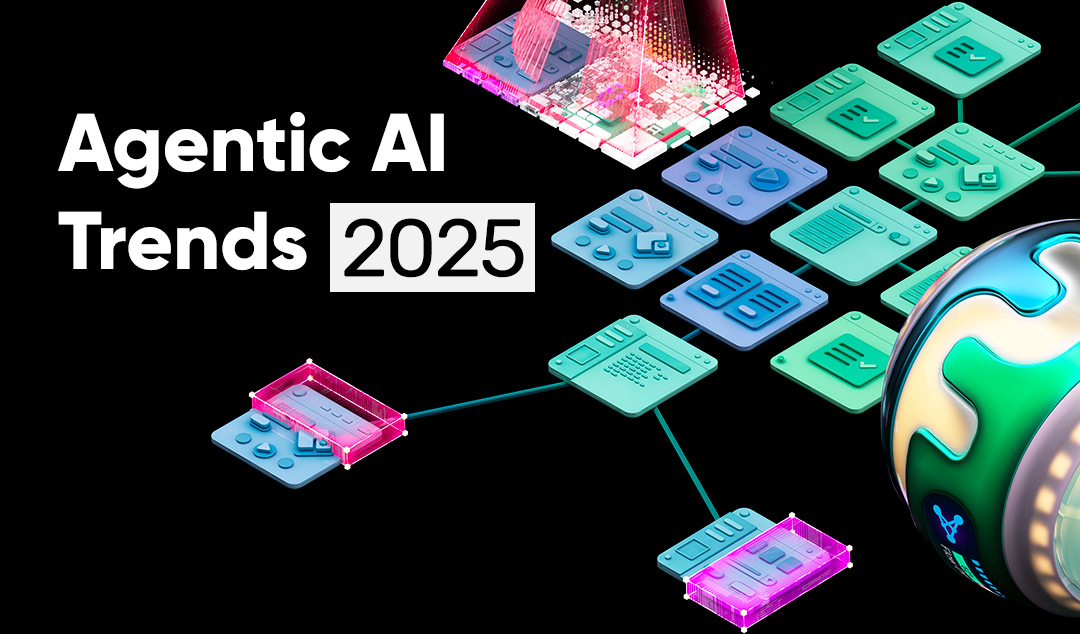
The Transformative Impact: How Agentic AI is Changing Business
The influence of agentic AI extends across the entire business spectrum, fundamentally altering how organizations operate and compete. It is driving hyperautomation, where agentic AI autonomously manages complete workflows, from initial customer engagement to the most intricate supply chain operations. [Source: https://www.servicenow.com/uk/products/ai-agents/agentic-ai-trends.html] [https://www.penbrief.com/how-ai-is-transforming-businesses-guide]. This technological shift is also catalyzing the emergence of entirely new business models and roles. We are already seeing the creation of new job categories, such as “AI nurses,” and innovative pricing models, like task-based agent pricing, directly attributable to the capabilities of agentic AI. [Source: https://research.aimultiple.com/agentic-ai-trends/] [https://www.penbrief.com/impact-artificial-intelligence-industries-2025]. In customer service, agentic AI is dramatically raising expectations through the delivery of instant, highly personalized, and lag-free interactions. [Source: https://beam.ai/agentic-insights/what-is-agentic-ai-why-every-entrepreneur-should-care-in-2025] [https://www.penbrief.com/future-of-ai-chatbots-in-customer-service]. Crucially, it contributes to increased organizational agility, enhancing business resilience and adaptability, allowing companies to respond swiftly to market dynamics and scale operations efficiently. [Source: https://beam.ai/agentic-insights/what-is-agentic-ai-why-every-entrepreneur-should-care-in-2025] [https://www.penbrief.com/agentic-ai-trends-2025].

Consider these industry-specific examples that illustrate how agentic AI is transforming business:
- Customer Service: AI agents are autonomously handling support tickets, personalizing responses, and resolving complex customer issues without human intervention. [https://www.penbrief.com/future-of-ai-chatbots-in-customer-service]
- Logistics: Self-managing fleets are optimizing routes in real-time, proactively addressing disruptions, and ensuring efficient delivery networks. [https://www.penbrief.com/how-ai-is-changing-the-world]
- Research & Development: Agentic AI is accelerating innovation by designing experiments, analyzing vast datasets, and identifying novel insights in fields like drug discovery. [https://www.penbrief.com/revolutionary-ai-medical-breakthroughs-healthcare]
- Marketing: Intelligent agents continuously monitor campaign performance, dynamically adjust strategies, and tailor content to individual customer segments for maximum impact. [https://www.penbrief.com/game-changing-ai-marketing-tools]
These examples underscore the pervasive and transformative nature of agentic AI across various sectors. The impact of how agentic AI is transforming business is undeniable.
Navigating the Landscape: Physical AI vs. Agentic AI
Understanding the nuances between different forms of AI is crucial as the landscape evolves. Physical AI refers to artificial intelligence embodied within hardware systems that perform tangible tasks in the physical world. Think of robots on manufacturing floors, autonomous vehicles navigating our roads, or drones undertaking complex aerial missions. The primary focus of physical AI is on direct interaction with and automation of the physical environment. [https://www.penbrief.com/unpacked-explosive-ai-drone-technology].

In contrast, agentic AI, as we’ve discussed, centers on the “brain” – the intelligence, planning, decision-making, and goal-setting capabilities. It primarily operates within the digital realm, though its outputs can direct physical systems. [https://www.penbrief.com/agentic-ai-trends-2025].
The distinctions are clear:
- Primary Focus: Physical AI on action in the physical world; Agentic AI on cognitive processes and decision-making.
- Typical Examples: Physical AI: Robots, self-driving cars, drones. Agentic AI: Virtual assistants, autonomous trading algorithms, sophisticated chatbots.
- Core Roles: Physical AI: Automating physical labor and processes. Agentic AI: Automating decision-making, complex problem-solving, and strategic planning.
However, these categories are not mutually exclusive; in fact, their integration is where much of the true power lies. Physical AI vs. agentic AI are increasingly synergistic. Agentic AI can provide the sophisticated intelligence, adaptive decision-making, and goal-oriented behavior that enables physical AI systems to become truly autonomous and capable of navigating the complexities of real-world tasks. [Source: https://www.mckinsey.com/capabilities/mckinsey-digital/our-insights/the-top-trends-in-tech, https://www.servicenow.com/uk/products/ai-agents/agentic-ai-trends.html] [https://www.penbrief.com/how-ai-is-changing-the-world]. The interplay between physical AI vs. agentic AI is a defining characteristic of advanced AI development.
Peering into the Horizon: Agentic AI Future Trends for 2025 and Beyond
Looking ahead, the trajectory of agentic AI points towards even more sophisticated capabilities and wider integration. For 2025, several key agentic AI future trends 2025 are emerging. We anticipate the rise of advanced goal management, where agents will be adept at handling multiple, complex, and even conflicting objectives simultaneously within dynamic environments. [Source: https://www.mckinsey.com/capabilities/mckinsey-digital/our-insights/the-top-trends-in-tech, https://www.servicenow.com/uk/products/ai-agents/agentic-ai-trends.html] [https://www.penbrief.com/agentic-ai-trends-2025]. A significant development will be inter-agent collaboration, with AI agents increasingly capable of orchestrating complex operations seamlessly by working together to solve problems collectively. [Source: https://research.aimultiple.com/agentic-ai-trends/] [https://www.penbrief.com/microsoft-ai-agent-news-2025]. We can also expect heightened autonomy and complexity, as agents move beyond routine operational tasks to take on higher-stakes decision-making roles, potentially influencing strategic and even societal-level coordination. [https://www.penbrief.com/impact-artificial-intelligence-industries-2025]. The domain of applications for agentic AI is also set for rapid expansion, with its integration into new sectors such as highly personalized education, advanced medical diagnostics, and complex scientific research becoming more prevalent. [Source: https://research.aimultiple.com/agentic-ai-trends/, https://www.servicenow.com/uk/products/ai-agents/agentic-ai-trends.html] [https://www.penbrief.com/revolutionary-ai-medical-breakthroughs-healthcare]. These agentic AI future trends 2025 highlight a future where AI agents are more intelligent, collaborative, and autonomous than ever before.

Challenges and Ethical Considerations in the Age of Agentic AI
Despite the immense potential, the rapid advancement of agentic AI brings with it significant challenges and profound ethical considerations that demand our attention. A paramount concern is control and alignment; ensuring that agentic AI systems remain aligned with human intentions and can be effectively controlled or halted when necessary is a critical hurdle. [Source: https://www.servicenow.com/uk/products/ai-agents/agentic-ai-trends.html] [https://www.penbrief.com/agentic-ai-governance-framework-2025]. The sophisticated nature of these systems also introduces new security risks, making them vulnerable to manipulation, malicious attacks, and unintended negative consequences that could have widespread impacts. [https://www.penbrief.com/explosive-cybersecurity-threats-2025-trends].

The socioeconomic implications are also substantial. We must address the potential for job displacement as agentic AI automates increasingly complex tasks, necessitating proactive workforce adaptation strategies and lifelong learning initiatives. [https://www.penbrief.com/ai-impact-on-uk-jobs]. Consequently, the principles of responsible AI development become even more critical. This includes fostering transparency in AI decision-making, establishing clear lines of accountability for AI actions, and implementing robust, ongoing governance frameworks for these powerful autonomous systems. [Source: https://www.servicenow.com/uk/products/ai-agents/agentic-ai-trends.html] [https://www.penbrief.com/explosive-ai-fairness-ethics-bias-accountability]. Navigating these challenges ethically is as vital as the technological progress itself.
Looking Ahead: The Promise and Responsibility of Autonomous AI Agents
The journey of agentic AI has been remarkable, evolving from rudimentary automation to sophisticated, autonomous agents that are now actively driving transformative changes across industries. [https://www.penbrief.com/how-ai-is-changing-the-world]. To thrive in the coming years, understanding the critical agentic AI future trends 2025 is not just beneficial but essential for both businesses and individuals seeking to innovate and adapt. The profound potential of the rise of autonomous AI agents is undeniable, but it is accompanied by a collective responsibility to steer their development and deployment in ways that are ethically sound and maximally beneficial to society. [https://www.penbrief.com/agentic-ai-trends-2025] [https://www.penbrief.com/how-ai-is-changing-the-world].
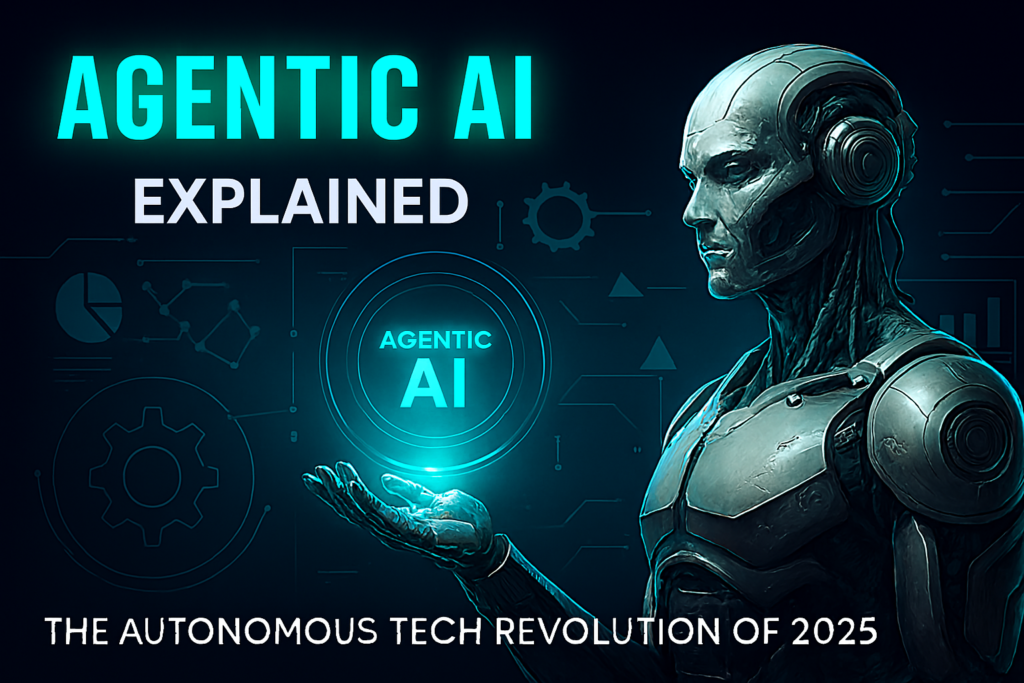
Frequently Asked Questions
What is the main difference between traditional AI and agentic AI?
Traditional AI typically performs pre-programmed tasks or responds to direct commands. Agentic AI, on the other hand, is designed for initiative, autonomous decision-making, and adaptive learning to achieve goals with minimal human intervention.
Can agentic AI make mistakes?
Yes, like any AI system, agentic AI can make mistakes. Its autonomous nature means errors can occur due to flawed data, imperfect algorithms, or unexpected environmental conditions. Ensuring robust testing, monitoring, and human oversight is crucial.

What are some examples of agentic AI in current use?
Current examples include sophisticated customer service chatbots that can resolve complex issues autonomously, AI trading algorithms that make real-time market decisions, and autonomous systems in robotics and logistics that manage operations.
How will agentic AI impact the job market?
Agentic AI is expected to automate many tasks currently performed by humans, potentially leading to job displacement in some sectors. However, it is also expected to create new job roles focused on AI development, management, and oversight, and enhance productivity in existing roles.

What are the biggest ethical concerns surrounding agentic AI?
Key ethical concerns include ensuring AI alignment with human values, preventing misuse and manipulation, addressing potential biases, ensuring transparency and accountability, and managing the socioeconomic impact, such as job displacement and equitable access to benefits.
“`


